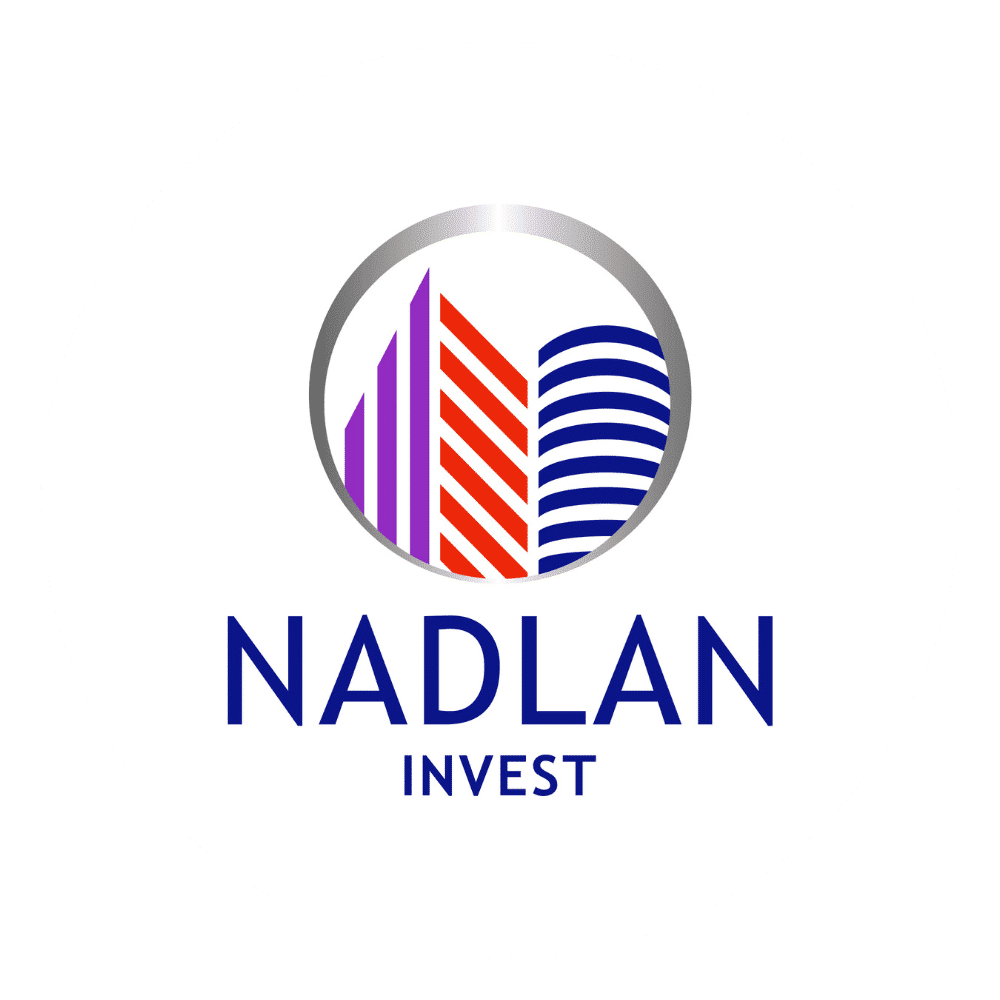US or Israel - Where to invest?

US or Israel - Where to invest?
I hear from many people who say it's better to buy an apartment in Israel, and wait for the price to rise by hundreds of thousands like every year.
So why is it really better to invest in the US?
The original responses to the post can be read at the bottom of the current post page on the site or in the link to a post on Facebook and of course you are invited to join the discussion
- Thanks Ronnie. what do you think? Will prices in Israel continue to rise?
- The birth here is tremendous, the territories are shrinking, and people are sacrificing the desire for their own property. In such a situation even if interest rates go up, I expect demand will still outstrip supply and prices will continue to rise in much of the region.
- It is better in the US for several reasons:
1. There is no purchase tax.
2. There is encouragement of investments Unlike Israel, here investors are being smuggled.
3. The yield is much higher in the US.
4. When buying a good location property you can buy below the market price and generate a capital gain. In Israel there is no great supply of such apartments and there there. - In the sand there is a low entry threshold, higher yields at the same time, and risk
- For anyone who does not have a single apartment in Israel, I would first recommend starting in Israel. From tax considerations to a single apartment, 0% on the par value up to NIS 1,696,750. If you hold the apartment for 18 months there is no tax on sale, income up to NIS 5000 or more is also tax free. There are still areas in the country (in the periphery) that can obtain apartments of NIS 450,000 and with a nice increase in value over the years and an average annual return of 5%. You can leverage relatively low equity with 75% financing from the bank quite easily and get a good return on equity over time. At least I believe that if you do everything I wrote about the country then you can go abroad.
- Build on this price increase is speculation. Either that or not. It is good to analyze trends but not enough. A deal should be profitable even without a price increase. The price was up and what's good. That's a total bonus
- The answer What will give you more confidence in investing? If it is to purchase a number of houses that will yield you a rental from a number of tenants or a single property that you can go and visit it every month? Are you building on an investment because of capital gains or cash flow?
Good to invest in the sand and good to invest in the country .. each with his own gaze. - 1. The threshold for entering transactions is lower and in some cases even without equity
2. There are Public Records that allow you to analyze deals and make more tailored offers to the seller
3. Because the US offers a variety of types and methods of buying and selling transactions that do not exist in the country
4. That a property can be put on a contract for inspection and not bought (in the country of the contract requires buying)
5. In the US there are inspectors for everything, even in the country there are but it is much less acceptable and much more difficult to assess the basics of a property
6. In the United States you have very high yields relative to the country in the rental market. There are quite a few advantages yet.
It is not contradictory that you can invest in the country and make money, use leverage from the country and take advantage of tax benefits that exist in the country.There is no good or no good - it is right depending on the time you are in and what you want to achieve at that time and with what amount of money you come with.
- Would you recommend starting in Israel?
And only after capital accumulation and tax-free utilization / larger mortgages,
Go to the US? - Leaving aside the psychological charge of "living in your home in your country" for a moment and remaining only in economic feasibility discussion, the words "exceed several hundred thousand" you specify are not a financially worded statement but in nominal terms. That is how it is impossible to measure the viability of an investment. On investing different amounts of money “several hundred thousand” give different return. So let's move on to talking about the annual return on investment.
In Israel, there has been a rise in prices in recent years (a little bit recently) of an average of 6-8% per year, depending on which year and which region, but on average that number. And for that is the investor's intention that asks you his question.
Rental income (national average of 2.75% annual return and up to 5% in development areas) against mortgage interest expense does not allow a sufficient margin for him to enter the game.
So the big profit is worth it.
Now let's look at the value elite in the US:
If the average elite value in the US was similar to that in Israel, it would still be worthwhile to invest there, because in the right areas the rental yield is 2-3 times higher than in Israel.
But the value issue is the issue, so let's go back to that.
For general information, the United States is not one. There are Flat areas where prices do not go up or down (usually due to zero aspiration and there is no pressure from buyers or sellers) but there are areas with positive immigration with an average value increase of over 10% per annum (such as Atlanta in recent years). I'll talk about the Atlanta market a little bit because I know it better. There are different bristles in which some neighborhoods have a value of 15-20% per annum, and even there were neighborhoods of 40% per annum, and even (hold tight) 100% value in areas that were urban development focus (such as some streets that jumped twice their price in the west end area ). You won't find such high-value returns in Israel.
Of course, these exact areas should be clarified and research work done and valued conversations with valued professionals who know the market and know where it is going, is the value you can give.
And all this without even talking about the fact that in the US you can find a property in Kenya at a price that is significantly lower than its value if you worked correctly, as opposed to in Israel, the country of "nobody wants to go sucker here" will find it more difficult to put up such a deal.
So let's go back to those who tell you why to buy in the US and tell them that there are 4 great growth mechanisms: renting + buying below the market + preferential value in some areas + more favorable taxes (and that's just the economic answer without taking into account what everyone else has said about convenience, Transparency etc.).
Successfully. - Ofek Boz
- For 8% in the US, you're right. An American accountant, an Israeli accountant, reports to the tax authorities there as well. tax payment. A huge headache. Better 5% yield in the country and not 8% gross there.
- And by the way, your question is too general. The 2 hand apartment will pay you immediately but the value increase will be slower. While a new apartment receives even before the permit, you will not be paid immediately, but only after a year or two, but the value increase will be much faster.
The question is how much economic air you can take. - The situation in the country is that the average number of salaries to purchase an apartment is the highest it has ever been in 144, not to mention the number of external salaries. Also, the Bank of Israel interest rate from which interest rates on mortgages are derived is very low. These two things seem to greatly reduce the likelihood that prices will continue to rise in Israel
- I think this is a question that a lot of people ask themselves, especially those at the beginning (like me).
Answer quite a few good answers before, I'll say what I think as a beginner. Starting from the entrance threshold - in my case this is the main consideration. I can get enough money to buy a property in the US, but I will have to pledge my entire life to buy an apartment in Israel - and this is one apartment. I will spend many, many years to pay off a mortgage and eventually stay with one property, while abroad I will have opportunities to accumulate a number of properties. Even if at the end of everyone's worth it is the same - I'd rather scatter some assets than bet on one city or another in the country.Although,
I live in Israel and do not plan to leave. The housing market is a major part of Israel, so an increase in the Israeli housing market will probably affect the other living prices here. I recognize the risk: an increase in the cost of living, and the solution will be to hold property in the country adjacent to the cost of living.And perhaps the most important thing: Who are the "same people" who tell you that it is better to buy an apartment in the country because prices will go up?
Do they buy apartments in droves themselves, or only recommend to others?
Do they know how to base this on data (demographic study of some government office, urban development program)?
Don't get me wrong, I am very connected to the comments that were before. What * data * I have come to see is the population growth rate in Israel is high, and the pace of construction is not enough - so the demand will continue to be large, and prices will probably continue to rise. Will it be hundreds of thousands? Will it be the same as in recent years, or the market that was 10 years ago (according to the housing price index - no significant change)?
The housing market has made a lot of noise in recent years in various articles and talkbacks, but the discourse is mainly based on emotions, rather than facts and figures, in my opinion - A question instead, a little too general. There are many parameters that influence the answer, what your goals (cash flow or capital gain), how much capital you have, what risk you are willing to take, how much you want to work for the return you are looking for, etc. I can give you my example, about a year ago And half I decided I wanted to enter the real estate world more seriously. I believe the investment should be split between a number of avenues, more risky and less risky, I want to end up sleeping quietly at the end of the day, I don't know if what used to be what it will be. If I could put the money into something that gives me 15 percent a year but makes me sleep less at night, I did nothing about it.
I decided that I wanted to start with something very solid, that would not require much work from me later, that would allow me to invest in more speculative things quietly. I bought an apartment in the country in a reasonable area + did a minor renovation and started renting. (30 percent financing, the mortgage is about 75 percent of the rent today). That is the basis for me. Once I was done with that, I advanced to look for the next channel. What exactly is that a good question, if you ask me I think the US has greater potential than in Israel if only because of the variety of money-making options, one will tell you it's flips, another will swear that only rents, and a third will only tell you a multi-family. I personally chose to invest in mortgages.
Whatever you do, there will be plenty of success and don't forget to make sure in whatever route you choose what the net after tax return will be, for another two percent a year is not worth starting to account for Uncle Sam.
































And by the way, your question is too general. The 2 hand apartment will pay you immediately but the value increase will be slower. While a new apartment receives even before the permit, you will not be paid immediately, but only after a year or two, but the value increase will be much faster.
The question is how much economic air you can take.
For 8% in the US, you're right. An American accountant, an Israeli accountant, reports to the tax authorities there as well. tax payment. A huge headache. Better 5% yield in the country and not 8% gross there.
Ofek Boz
If we put aside for a moment the psychological charge of "living in your own home in your own country" and remain only in the discussion of economic feasibility, then the words "will cost several hundreds of thousands" that you mentioned, is not a statement that is formulated economically realistically but in nominal terms. That's how you can't measure the viability of an investment. For the investment of different amounts of money "a few hundred thousand" give different returns. So let's move on to talking about the annual percentage return on the investment.
In Israel, there has been a rise in prices in recent years (a little bit recently) of an average of 6-8% per year, depending on which year and which region, but on average that number. And for that is the investor's intention that asks you his question.
Rental income (national average of 2.75% annual return and up to 5% in development areas) against mortgage interest expense does not allow a sufficient margin for him to enter the game.
So the big profit is worth it.
Now let's look at the value elite in the US:
If the average elite value in the US was similar to that in Israel, it would still be worthwhile to invest there, because in the right areas the rental yield is 2-3 times higher than in Israel.
But the value issue is the issue, so let's go back to that.
For general information, the USA is not one country. There are flat areas where prices neither rise nor fall (usually due to immigration aiming for zero and there is no pressure from buyers or sellers), but there are areas with positive immigration with an average increase in value of over 10% per year (such as Atlanta in recent years). I will talk a little about the Atlanta market since I know it better. In it there are different bristles where some neighborhoods have an increase in value of 15-20% per year, and there were even neighborhoods of 40% per year, and even (hold tight) 100% increase in value in areas that were the focus of urban development (such as certain streets that jumped in price twice in the west end area ). You will not find such elite value returns in Israel.
Of course, these exact areas should be clarified and research work done and valued conversations with valued professionals who know the market and know where it is going, is the value you can give.
And all this without even talking about the fact that in the US you can find a property in Kenya at a price that is significantly lower than its value if you worked correctly, as opposed to in Israel, the country of "nobody wants to go sucker here" will find it more difficult to put up such a deal.
So let's go back to those who tell you why to buy in the US and tell them that there are 4 great growth mechanisms: renting + buying below the market + preferential value in some areas + more favorable taxes (and that's just the economic answer without taking into account what everyone else has said about convenience, Transparency etc.).
Successfully.
Would you recommend starting in Israel?
And only after capital accumulation and tax-free utilization / larger mortgages,
Go to the US?
1. The threshold for entering transactions is lower and in some cases even without equity
2. There are public records that make it possible to analyze transactions and offer more tailored offers to the seller
3. Because the US offers a variety of types and methods of buying and selling transactions that do not exist in the country
4. That a property can be put on a contract for inspection and not bought (in the country of the contract requires buying)
5. In the US there are inspectors for everything, even in the country there are but it is much less acceptable and much more difficult to assess the basics of a property
6. In the US, you have very high yields relative to the country in the rental market
There are quite a few advantages yet.
It is not contradictory that you can invest in the country and make money, use leverage from the country and take advantage of tax benefits that exist in the country.
There is no good or no good - it is right depending on the time you are in and what you want to achieve at that time and with what amount of money you come with.
The answer What will give you more confidence in investing? If it is to purchase a number of houses that will yield you a rental from a number of tenants or a single property that you can go and visit it every month? Are you building on an investment because of capital gains or cash flow?
Good to invest in the sand and good to invest in the country .. each with his own gaze.
Build on this price increase is speculation. Either that or not. It is good to analyze trends but not enough. A deal should be profitable even without a price increase. The price was up and what's good. That's a total bonus
For anyone who does not have a single apartment in Israel, I would first of all recommend starting in Israel. From tax considerations for a single apartment 0% on the part of the value up to NIS 1,696,750. If you keep the apartment for 18 months, there is no appreciation tax on the sale, income up to approximately NIS 5000 is also exempt from tax. There are still areas in Israel (in the periphery) where apartments can be obtained for about NIS 450,000 and with a nice increase in value over the years and an average annual return of 5%. You can leverage relatively low equity with 75% financing from the bank quite easily and achieve a good return on the equity over time. I at least believe that if you implement everything I wrote about the country, then it will be possible to move abroad.
In the sand there is a low entry threshold, higher yields at the same time, and risk
It is better in the US for several reasons:
1. There is no purchase tax.
2. There is encouragement of investments Unlike Israel, here investors are being smuggled.
3. The yield is much higher in the US.
4. When buying a good location property you can buy below the market price and generate a capital gain. In Israel there is no great supply of such apartments and there there.
The birthrate here is tremendous, the areas are shrinking, and people sanctify the desire for their own property. In such a situation, even if the interest rate rises, I assume that the demand will still exceed the supply and the prices will continue to rise in a large part of the regions.
Thanks Ronnie. what do you think? Will prices in Israel continue to rise?